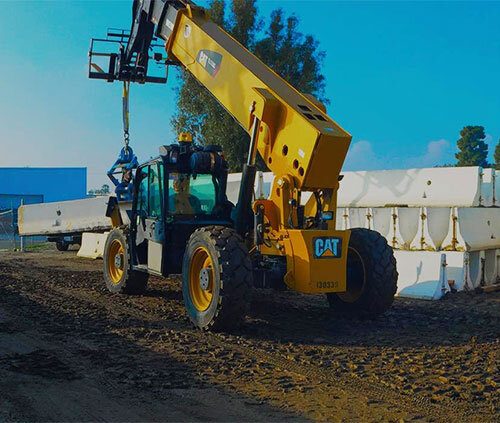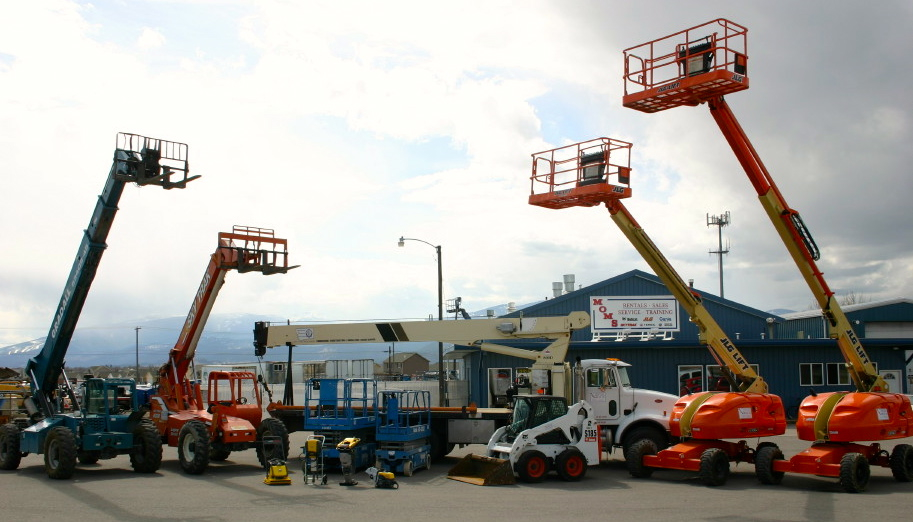Equipment Rental Company: Your Source for All Kinds Of Machinery
Equipment Rental Company: Your Source for All Kinds Of Machinery
Blog Article
Optimize Your Budget by Understanding the Prices Related To Construction Equipment Rentals
Comprehending the full extent of expenses associated with construction tools services is vital for optimizing your budget. What strategies can be utilized to efficiently manage these costs and guarantee an extra reliable rental experience?
Overview of Rental Expenses
When considering building and construction equipment leasings, understanding the associated costs is critical for reliable budgeting and job planning. Rental costs can vary considerably based upon numerous aspects, consisting of equipment kind, period of service, and area. The first rental cost commonly shows the tools's market demand and its connected operational abilities, affecting the general cost.
In enhancement to the base rental rate, supplementary expenses may arise, such as transport costs, fuel surcharges, and maintenance charges. It is necessary to represent these added expenditures to accurately assess the complete price of leasing tools. Additionally, the rental period can impact rates; longer services might get affordable prices, while temporary leasings may sustain greater day-to-day charges.

Breakdown of Rental Prices
A comprehensive understanding of rental rates is essential for specialists and project managers intending to enhance their budget plans. Rental prices for building tools usually consist of several components, consisting of base rates, time-based charges, and use charges.
Base prices are the core fees connected with the rental of the devices, usually established by the type and dimension of the machinery. These rates can differ significantly, influenced by variables such as devices demand, schedule, and local market trends. Time-based fees, which may be daily, weekly, or monthly, offer to accommodate different job timelines and rental periods.
In addition, rental rates may consist of usage costs, which apply when devices is utilized beyond a specified threshold, making sure that the rental business can represent wear and tear. Seasonal need changes can also influence rental prices, with peak building periods generally regulating higher prices.
In addition, recognizing the rental company's plans regarding upkeep and insurance coverage can offer further understanding into the overall cost framework. By assessing these parts, service providers can make educated choices, making sure the option of rental tools straightens with both project needs and budget plan restrictions.
Extra Fees to Think About
Understanding the complexities of added fees is essential for contractors to handle their overall service expenses efficiently. Past the common rental prices, various extra charges can significantly influence the total expense of tools service. These costs frequently include delivery and pick-up costs, which can differ based on distance and logistics associated with transferring the tools to and from the job website.
In addition, some rental companies may enforce gas surcharges if the equipment is returned with much less gas than when rented. It is also important to know possible cleaning Continued costs, especially for specific equipment that calls for complete maintenance after use.

Extensively assessing the rental arrangement and making clear these extra costs ahead of time can aid service wikipedia reference providers stay clear of unexpected expenses and guarantee that budget plans stay intact throughout the project lifecycle.
Upkeep and Repair Service Costs
Routine repair and maintenance expenses are usually overlooked factors that can considerably affect the overall expense of building and construction devices services. When renting out equipment, it is important to consider not only the rental costs but also the potential expenses connected with maintaining the machinery in optimum operating problem.
Many rental companies consist of standard maintenance as part of the rental contract; nevertheless, much more comprehensive repair services Recommended Reading or unforeseen malfunctions can result in additional costs. It's important to evaluate the rental agreement meticulously to understand what upkeep services are covered and what obligations drop on the occupant.
In addition, devices that is not well-kept can lead to inadequacies on duty site, possibly triggering delays and raising job expenses. To mitigate these threats, it is suggested to perform normal evaluations and keep open interaction with the rental copyright regarding any kind of concerns that occur during usage.
Insurance Coverage and Liability Prices
Insurance and obligation prices are crucial components that can significantly influence the overall cost of building and construction equipment rentals (rental company near me). These costs make sure that both the rental firm and the customer are secured from possible monetary losses arising from mishaps, damage, or burglary during the rental duration

Furthermore, customers should be conscious of any kind of deductibles or exemptions in the insurance plan, as these can affect prospective out-of-pocket expenditures. Understanding the terms of any kind of insurance coverage is essential to avoid unexpected expenses. Eventually, budgeting for insurance policy and responsibility expenditures can aid make certain a smoother rental experience and safeguard versus financial dangers connected with construction projects.
Final Thought
In verdict, a thorough understanding of the prices connected with building and construction devices leasings is vital for reliable budget plan administration. Ultimately, educated decision-making relating to equipment leasings contributes to the general success of building endeavors.
Rental prices can vary substantially based on several aspects, including equipment type, duration of service, and area (scissor lift rental). The rental period can impact prices; longer rentals might certify for reduced prices, while short-term services may sustain greater daily fees
By performing comprehensive research study and involving with trusted rental business, service providers can successfully navigate the intricacies of rental pricing, eventually optimizing their monetary sources.
Beyond the conventional rental prices, various extra charges can substantially influence the total price of tools service. Rental companies typically provide obligation insurance coverage that covers injuries to third parties or damages to property, while tools damage insurance policy can cover the price of fixings or substitute if the leased equipment is harmed.
Report this page